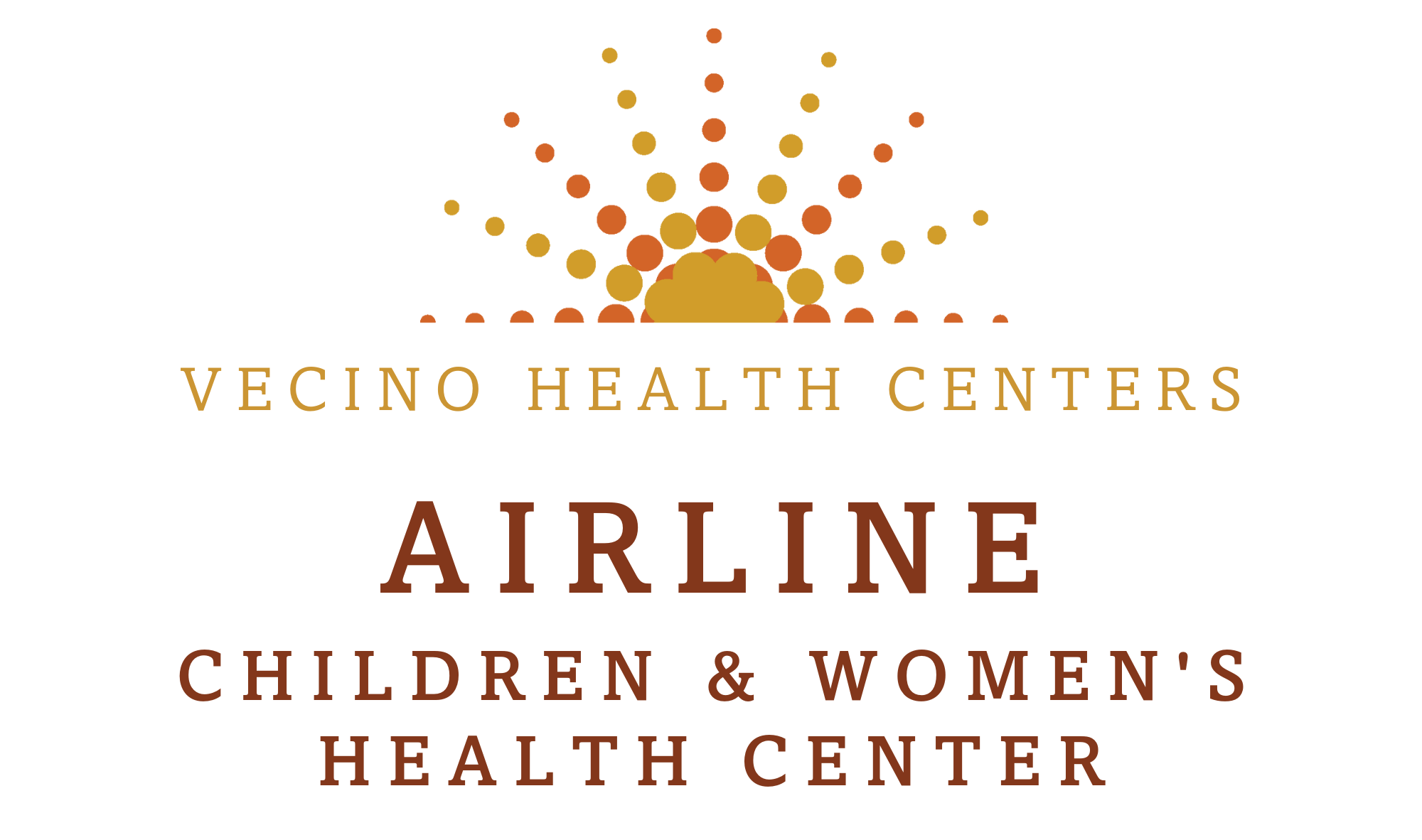Everyone ages 6 months and older is now eligible to get the COVID-19 vaccine.
Many people have questions about vaccinations. Are they safe for babies and toddlers? Should I get vaccinated if I’m pregnant? What if I’ve already had COVID-19 and recovered?
It can be confusing! The doctors at Vecino Health Centers are helping make the information easy to understand with answers to these common questions.
English
Español
COVID-19 vaccines for the whole family
Airline Children & Women's Health Center provides vaccination services to all ages. New patients are always welcome!
Should my child or teen get the COVID-19 vaccine?
Yes! Everyone 6 months and older should get vaccinated for COVID-19. The virus is still being transmitted with new variant strains of the virus.
Just like adults, children need protection from the virus for their health and the health of their family and friends. And if they do catch the virus, they likely won’t get as sick as they could without the vaccine.
My child had COVID. Does she still need to be vaccinated?
Yes. Although having COVID-19 can provide some protection from getting sick with the virus again, we still don’t know how long that protection lasts. The vaccine is the safest and most effective way to protect you and your child or teen against COVID-19.
Can my child get other needed vaccinations at the same appointment?
Yes! Children can get caught up on routine checkups and other vaccinations in the same visit. Schedule a Well-check Exam to be sure children are up to date on all routine immunizations. The COVID-19 vaccine can be safely given at the same visit.
I heard that COVID is mild for most kids. Why do they even need to be vaccinated?
It’s true that most children infected with COVID have only mild symptoms. But, some children do get very sick and we know that Hispanic, Black, and Native American children were three times more likely to be hospitalized than white children. The vaccine is a safe and effective way to protect all children.
What are the side effects of the COVID vaccine for babies, children and teens?
Children and teens – Most children who get vaccinated experience only mild side effects like soreness at the injection site, fever, or fatigue. Headaches, muscle aches, and nausea are also possible. These are normal and a sign that their bodies are building immunity to the virus. Side effects usually go away on their own within 48 hours.
Babies and toddlers – Potential side effects aren’t too different in children under 5 from side effects in older kids and adults. The most common vaccine side effects in babies and toddlers include fever, irritability, and pain at the injection site. According to the Centers for Disease Control and Prevention (CDC), kids under 3 might lose their appetite, feel sleepy, or cry after getting the vaccine. Side effects from the COVID-19 vaccine are typically mild and short-lived.
For more: CDC: Possible Side Effects After Getting a COVID-19 Vaccine
Which vaccine will my baby, child, or teen get?
Both the Pfizer-BioNTech and Moderna vaccines have been approved for children 6 months and up and are equally effective at protecting kids against severe COVID.
Do children and teens get the same dose of the COVID-19 vaccine as adults?
It depends on your child’s age. Children ages 12 and up get the same vaccine dose as adults, but the younger children receive a smaller and more age-appropriate dose that is right for them. The smaller doses were rigorously tested and found to create the needed immune response for each age group.
The COVID-19 vaccines for children have the same active ingredients as the vaccines given to adults.
Is the COVID-19 vaccine safe for children with food allergies?
The chance of having an allergic or adverse reaction to a vaccine is rare but can happen.
According to the CDC, people with allergies to food, pets, insects, venom, pollen, dust, latex, and oral medicines can safely get a COVID-19 vaccine. They do not contain any food, latex, or preservatives.
It is always best to talk to your child’s pediatrician about any concerns you may have.
